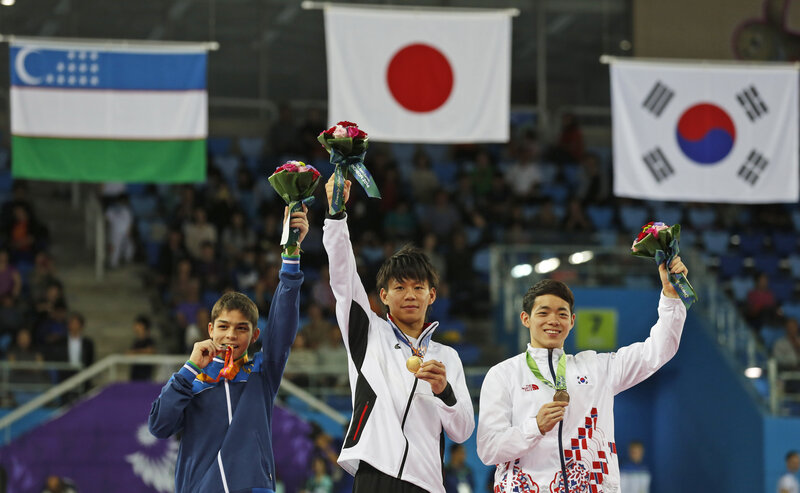Coming Soon...
OKSomething went wrong!
Please try again later.

Written By - Aksh Gupta
Golf in India has produced several talented players, including Jeev Milkha Singh, Arjun Atwal, and Anirban Lahiri, who are well-known figures in the golfing community. Despite their success, India still waits for its first major champion on the international stage. With promising talents like Aditi Ashok and Shubhankar Sharma representing India in the 2024 Olympics, the sport continues to gain momentum. While sports like cricket dominate, golf, though steadily growing in popularity, has yet to capture the nation's collective enthusiasm similarly. So, what factors are preventing Indian golfers from Storming into the Top 10 Official World Golf Rankings? Let's explore the hurdles that need to be addressed.

Jeev Milkha Singh wins Scottish Open 2012 (Credit: Sport360)
India’s Connection with Golf goes back to colonial times, boasting some of the oldest golf courses outside the UK. Despite this Early Foundation, the country’s Golf Infrastructure and support have lagged behind nations like the U.S., South Korea, and South Africa. Although Indian players have made their mark on the Asian and European tours, winning a prestigious major tournament remains out of reach.
1. Limited Access To Training Facilities - Unlike sports like cricket, where facilities are abundant and widely accessible, golf in India is still a niche activity. With just over 200 courses in the country, most are either private clubs or military-owned, making it difficult for the average person to access them. In contrast, countries like the U.S. and South Korea have many public courses and junior development programs. India has seen some progress with the establishment of golf academies like the David Leadbetter Academy in Pune, but there is still a long way to go in providing adequate access to high-quality facilities.
2. High Costs and Financial Barriers - Golf remains an expensive sport in India, with the cost of equipment, coaching, and club memberships being prohibitively high for many aspiring players. This limits the talent pool significantly. Additionally, corporate sponsorship for golf needs to catch up to other sports, particularly cricket. While sponsorship deals are crucial for many golfers worldwide, in India, only a select few receive the financial backing needed to sustain a professional career. The majority of players must self-finance, which often restricts their participation in international events. However, platforms offering affordable virtual memberships and easy access to multiple golf courses, such as those provided by 4moles.com, can help reduce some of these financial burdens.
3. Media And Sponsorship Gaps - One major difference between India and top golfing nations is the lack of media coverage golf receives in the country. Sports like cricket dominate airwaves and newspaper columns, while golf receives minimal attention, even when Indian players compete internationally. This lack of exposure further limits sponsorship opportunities.
In countries like the U.S. or the UK, golf enjoys extensive media coverage, creating a platform for brands to engage with the sport. In India, corporate sponsorship for golf is scattered, with only a handful of companies, like Hero MotoCorp and DLF, supporting major events. However, the sport still lacks widespread commercial backing, which is crucial for promoting it to a broader audience.
Indian players, unlike their international counterparts, often have to manage their expenses, limiting their opportunities to compete globally. With consistent sponsorship, they can gain the exposure needed to compete with top-tier international talent.

Japan surges ahead of South Korea in Asian Games medal race (Credit: KOREATIMES)
Countries like South Korea and Japan have made enormous strides in the world of golf over the past few decades. South Korea, for instance, began its golfing journey around the same time as India but has quickly become a global powerhouse, particularly in women’s golf.
A major factor in South Korea’s success is its focus on grassroots development. Government-supported training programs, public courses, and the availability of world-class facilities have made the sport accessible to the masses. Golf in these nations is no longer an elite sport—it’s part of mainstream culture.
On the other hand, India’s development has been slower, with far fewer resources dedicated to nurturing young talent. For Indian golfers to rise to the international level, the country must invest more in grassroots initiatives and public access courses.
Despite these obstacles, the future of Indian golf is promising, provided the right steps are taken.
1. More Public Courses and Grassroots Programs :
For golf to grow in India, the country needs more public courses and grassroots programs. Countries like South Korea have achieved tremendous success by focusing on the junior level, making golf accessible to children from a young age. India should look to implement similar programs, encouraging youth participation by creating affordable, accessible entry points.
2. Enhanced Corporate Sponsorship and Media Coverage :
Golf needs greater media attention in India. With increased visibility, corporate sponsors are more likely to invest in players, tournaments, and infrastructure. Brands that see the value in backing cricket and football should recognize the growing interest in golf, especially among India’s growing middle-class population. Platforms like 4moles.com are at the forefront of this transformation, providing comprehensive coverage that elevates the sport and attracts essential sponsorship.
3. Opportunities for International Training and Competition :
Exposure to international events is crucial for player development. Programs that offer scholarships or sponsorships for young golfers to train abroad could help bridge the gap between Indian and global players. By competing in international tours, Indian golfers will gain the skills, confidence, and experience necessary to compete at the highest level.
4. The Role of Technology :
With advancements in virtual golf technology, more people can now practice and play the sport without having access to a course. This is a significant opportunity for India to introduce golf to new audiences and expand its reach beyond traditional golf courses.
India undoubtedly has the potential to produce a major golf champion. Talented players like Jeev Milkha Singh, Arjun Atwal, and Anirban Lahiri have proven that Indian golfers can succeed on the global stage. With top contenders such as Aditi Ashok and Shubhankar Sharma representing India in the 2024 Olympics, the country’s golfing prospects are looking brighter. However, for India to regularly compete for major titles, significant changes must be made in terms of infrastructure, sponsorship, and international exposure.
As India’s economy continues to grow, and with the right investments, golf could become more mainstream. It may only be a matter of time before we see an Indian golfer in the Top 10 World Golf rankings, but for that to happen, both private and public stakeholders must invest in the sport.
What do you think? What steps can help Indian golfers make it to the top? Share your thoughts and join the conversation!
 Wishing you the 72nd Golf Lovers Day!
Wishing you the 72nd Golf Lovers Day!
Aditi Ashok Set to Make History at the NW Arkansas Championship
 TGTM 2024: Where Every Swing is an Adventure
TGTM 2024: Where Every Swing is an Adventure
 Five Iron Golf India: Experience The Virtual Greens
Five Iron Golf India: Experience The Virtual Greens
4moles Editorial | April 16, 2025
The Mumbai leg is set to tee off on 23rd May, 2025 at the prestigious Bombay Presidency Golf Club Read More
4moles Editorial | April 04, 2025
Arjun Bhati, a young golf prodigy and three-time Junior Golf World Champion, received the National Youth Award on April 3 for his achievements and selfless contributions during the COVID-19 crisis. Read More
4moles Editorial | April 01, 2025
The highly anticipated 4moles.com Golf Rendezvous PRO-AM League 2025 kicked off with an electrifying Gurugram leg at Classic Golf and Country Club. Read More
Indian Golf Union | April 02, 2025
The R and A hails groundbreaking initiative by the Indian Golf Union to popularize the sport among young children at the grassroot level Read More
4moles Editorial | March 20, 2025
Golfers in Navi Mumbai have something truly special to look forward to—Kharghar Valley Golf Course . Read More






| « | Apr, 2025 | » |
| Mo | Tu | We | Th | Fr | Sa | Su |
|---|---|---|---|---|---|---|
| 31 | 1 | 2 | 3 | 4 | 5 | 6 |
| 7 | 8 | 9 | 10 | 11 | 12 | 13 |
| 14 | 15 | 16 | 17 | 18 | 19 | 20 |
| 21 | 22 | 23 | 24 | 25 | 26 | 27 |
| 28 | 29 | 30 | 1 | 2 | 3 | 4 |
| 5 | 6 | 7 | 8 | 9 | 10 | 11 |
| Today | Clear date |
The Chevron Championship 24 Apr 25 - 27 Apr 25 USD 7.9 MILLION
Golf Rendezvous PRO-AM League 2025 23 May 25 - 23 May 25 INR 3 CRORES
What aspect of the Golf Rendezvous PRO-AM League 2025 excites you the most?
It is game day at your golf tournament (stroke play format). Which pre-round move could get you disqualified?